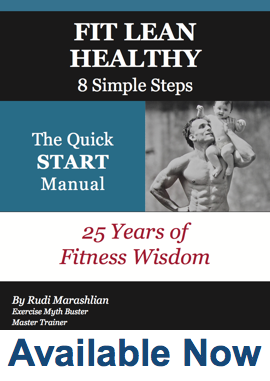Losing weight can be very confusing when you consider the vast number of possible diets to choose from. The pressure to be thin is amazing in our society and yet there are more obese people than ever before.
Everyone has an opinion on which method is best but, clearly, not all diets work especially in the long term. With low-fat, low-carb, liquid-only, special injections, you name it; so many diets to choose from, which one is the best one for you? Which one will actually work so you not only lose excess weight but keep it off?
“Weight loss” itself is a confusing phrase. With no specification on exactly what you want to lose and only attention on a number on a scale you could be losing any number of essential things from your body as you “lose weight”. On very low calorie diets people are happy to report losing 5 to 10 pounds in a week, what they probably don’t know is that those pounds are mostly water, some muscle and a little fat. Most people, when they say “weight loss” really mean FAT LOSS and naming it exactly makes it so much easier to address.
The majority of people who lose a lot of weight on a strict diet gain it back (and more) once they end the diet. It stands to reason that spending a bit of time researching how to lose weight effectively – for you – would be time well spent. In addition, it’s important to keep in mind that each person is an individual so no one diet or weight-loss plan will work for everyone. If you consider your personal preferences, lifestyle and weight goals, you might have a better chance of finding the best diet to suite YOUR needs.
Before starting another weight-loss program, take a look at these factors:
PAST SUCCESSFUL ACTIONS. Think about when you were last in good shape. How and what were you eating at that time? How were you exercising? How long ago was it? Make a list of these things to determine what actually worked for you personally.
PAST DIETS. Think about diets you’ve been on in the past. What did you like or dislike about them? What worked and what didn’t? How did you feel emotionally and physically? Did you put on weight after you stopped the diet? Looking at these factors will help steer you to a diet that you’ll be more likely to follow.
BUDGET. Some weight-loss programs require that you buy meals, visit weight-loss clinics, join support groups or even consult a doctor. Does the cost of one of these programs work for you financially?
SPECIAL NEEDS. Do you have a health condition such as diabetes or allergies? Perhaps you have special cultural or ethnic requirements when it comes to food. These are important factors that should be taken into account when choosing a diet to follow.
As tempting as fast weight loss may seem, successful weight loss requires making permanent changes to your eating, exercise and lifestyle habits. In the quest for a thinner body it makes sense to look at the habits of people who are not overweight – how do those people manage to stay a healthy weight? What do they eat, do they exercise? What are their dietary habits?
Here are some features to look for:
BALANCED NUTRITION. A weight-loss plan should include proper amounts of nutrients and calories for your individual needs. Diets that require you to cut out entire food groups (such as fats or carbohydrates), eat large quantities of one type of food (grapefruit) or cut calories excessively may result in nutritional deficiencies. It’s very important to take into account any medication you may be on before severely changing your diet as you can also inadvertently cause nutritional imbalances with possible life-threatening consequences.
PHYSICAL ACTIVITY. Every weight-loss program should involve an increase of physical activity. Beware of those diets that require no exercise. Exercise plus reduced calories can give you a big edge when it comes to weight-loss. Exercise not only helps to increase your metabolism to help burn calories faster, it also offers such health benefits as boosting your mood, strengthening your cardiovascular system and reducing your blood pressure. Studies show that people who maintain weight loss over the long term get regular exercise.
GRADUAL WEIGHT LOSS: Slow and steady weight loss is easier to live with and usually wins over fast weight loss long term. 1 to 2 pounds per week is recommended and is more likely to be actual fat weight and not muscle weight or water. Longer-term weight loss tends to result in a change of lifestyle and eating habits so weight stays off. Fast weight loss from severe calorie restriction usually results in weight gain once the diet is completed as actual healthy eating habits aren’t part of the diet and people often don’t have a workable maintenance plan once the diet is done – they can go back to old eating habits that made them fat in the first place.
The bottom line in choosing a weight-loss plan for yourself is to ensure you get the nutrition your body really needs to stay healthy, you exercise regularly (minimally 3 days a week) and you ensure your calorie intake is less than your calorie expenditure. Don’t forget, calories measure energy and if you don’t use the energy you take in in the form of food it will get stored for later and too much such energy becomes fat.


